
A few consciousness researchers and some of the more philosophically inclined that ponder what consciousness is all about, propose that inanimate objects and mere matter, maybe the Universe itself, all harbor some element of consciousness, however minimal:
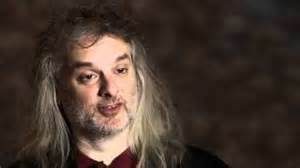
David Chalmers, a very influential philosopher whom I disagree with completely for a number of reasons and “most specifically detest” for one in particular all of which I will elucidate in this essay, has claimed that the subjective experience of consciousness (the “hard problem” as he coined it), will never, can never be explained by mere physical processes, such as those produced by the neurons operating in your brain. I intentionally use Jacob Bronowski’s disparaging words for another philosopher: Freidrich Hegel, who was also given to supposedly profound in-principle pronouncements about how the world works, which had little basis other than speculation and turned out spectacularly wrong. Chalmer’s delineation of the “hard”(internal experience, self awareness) vs.”easy”: (movement, cognition, perception), problem of consciousness, the supposed intractability of explaining conscious experience through a study of the brain:(anti-materialist reductionism), and his views on panpsychism have become quite popular in some circles.
I think his views are inaccurate in a number of ways. The “hard/easy” distinction first.
We can simulate cognitive processes in the brain thru high speed computers quite successfully with computers like Big Blue beating grand masters at chess, and Watson smoking any and all Jeopardy contestants. Complex, but not so hard now nowadays, yet we can’t build a robot with the motor skills of a 5 year old. Raising sippy cups, juice boxes, glasses of liquid, soda straws, slurpees, etc., etc., to one’s lips and drinking, swallowing, whether the container is round, square, full, half empty, containing liquids of varying viscosity or part solid. These simple actions considered part of the “easy” problem are well beyond the versatility of any computer driven robot. We can make a robot to do any one of those tasks, providing the container and liquid is the same each time, but to immediately adjust to the overall goal of ingesting liquids from a range of containers at varying degrees of volume and contents…you need a separate robot for each one. The 5 yr olds brain just adjusts on the fly to the overall goal, seamlessly…and in milliseconds, even if she can’t tie her shoes yet…. Not so “easy”.
On the other hand, computer speech perception has gotten dramatically better, just ask Siri or Alexa, well, ask them damn near anything and you will most likely get an appropriate and coherent answer, (tho not always or as often as a human) but to get a computer to decipher dozens of person’s varied and unpredictable handwriting that we humans seamlessly interpret is a much tougher cognitive task to simulate. Easy and hard get kinda blurred. Maybe consciousness: self awareness and personal experience, isn’t any more hard or easy than any other cognitive process.
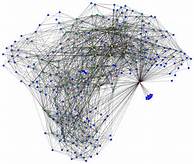
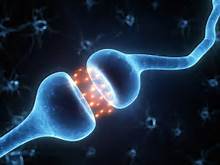
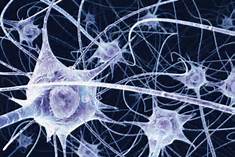
Chalmer’s real distinction of course, is to say the hard part is intractable because the feeling of anything, sensing anything or having thoughts is not material and requires something more than physical reductionism. Matter alone cant make the feeling of experience. The neurons alone depicted above, 85 billion of them networked with 1,000’s of connections each in our uniquely evolved brains, interacting in dozens of hierarchical and parallel processing modules, just cant explain conscious experience. He kinda skirts around a reluctant sort of dualism, just saying its gotta be more than just neurons. Sam Harris is sympathetic to that view as well. Chalmers view is termed naturalistic dualism in that he claims physical processes do cause the phenomenological feeling of conscious experience, but there is still something more to it than that. Consciousness itself is non-material, and therefore cant be produced by material alone. He never quite explains what that something more could be.
At that point, I think he is just another dualist, however reluctant, however nuanced,…and to put it bluntly, is as full of shit as any other spiritualist past or present. If you propose “it can’t be this” well then what is it? He says we need a new theory of consciousness as any material theory will come up short. Then he proposes nothing, as he cant without going full-spiritual. That alone wouldn’t make me detest the man, as people believe all sorts of bullshit. It is part and parcel of our religious-tinged culture to suppose what we are and feel is more than our brains, mere matter. I think all his philosophical hand-waving reflects that and nothing more. We just don’t like the idea that our intellect and personality isnt more than just our unique configuration of neurons, wired up by our individual path thru child development and adult life.
Oddly, no-one claims all the other cognitive processes, “easy” or “hard” “must be more than just neurons” regardless of the stage of simulation we may be at with each one. I’ve never heard anyone claim for instance that:
“Vision must be more than mere neurons. No way could the purely physical visual cortex produce vision. There must be something more and it must be something non-physical…”
Destroy the visual cortex and the process and phenomenon of sight disappears, and you cant see, cant experience vision anymore. Anesthetize or destroy any number of the neural areas involved in consciousness, and conscious experience ends.
My biggest complaint about that position, as I have said, is no-one will put forth any theory of just what that other thing is. Chalmers just claims consciousness is something fundamental, and we will need a new theory of consciousness to explain it. No theory has been forthcoming however, so I don’t take that view any more seriously than I do chiropractic, or ESP, or Nessie, or Bigfoot for that matter. And I suspect that wishful anti-materialism about consciousness will fade with time as it has with so many other phenomena we applied our scientific investigation to in the past 200 years: evolution, life itself, germs and disease, mental disorders, among others. All these had to have non-material, spiritual explanations for them. Not no more. I suspect consciousness once demystified in the next decades or century will be dropped from the “its gotta be something more than physical” pleading list as well.
Even Newton himself succumbed to a version of “it’s just gotta be beyond a physical process” in invoking the idea that God must fix the planetary orbits now and then that had to go out of whack eventually, given all their incalculable gravitational pulls on each other, messing up the otherwise orderly grand design. Laplace and others put that appeal to non-material spiritual intervention to bed with later mathematical analyses demonstrating the stability of the Solar system.
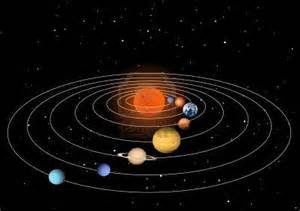
As in the past with much of scientific progress, philosophical pronouncements are readily ignored and science just plods on regardless of what philosophers think; collecting data, analyzing the phenomena, coming to understanding the processes that mere matter undergoes, often demystifying centuries old dilemmas: like “life” for example. It was once held by most humans, for millennia, that of course there must be something more than mere matter to produce living beings. Some god had to have breathed life into the mud, blood, ribs, what have you that humans were thought to be ultimately made of. Matter alone and purely physical processes surely could not be all here is to life.
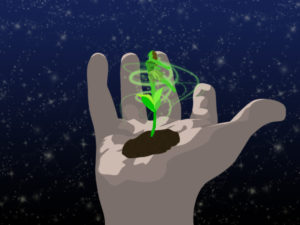
And that longstanding philosophical and religious view turned out utterly false. In understanding the detailed and myriad processes that produce life, the mystery of life, and philosophical certainty of a spiritual, non-material component all but disappeared. Many people are still taught by their religions to believe in a non-material soul that will eventually inhabit some sort of spiritual realm, but that IS a whole ‘nother essay, fersure! In scientific circles at least and much of the public, life is understood to be a process of material interactions, large molecules forming DNA, RNA, proteins, and the like which replicate and metabolize and move and respond in self-contained cells. When those processes end, life ends, things die and disintegrate. No spiritual “something more than matter” required, nor importantly, ever discovered. All the evidence says matter, in the right configurations undergoing the right processes make up the so-called mystery of life that philosophers and religionists said had to be something more, as Chalmers and others claim today with consciousness.
For another failed philosophical pronouncement, Friedrich Hegel claimed there could philosophically only be 7 objects orbiting the sun. As Bronowski pointed out in his 1973 book and subsequent TV series Ascent of Man, the ink on Hegel’s pronouncement had barely dried when the asteroid Ceres was discovered. Oops.
Another illustration of a philosophical pronouncement crashing to the ground with better data and scientific discovery, is the example discussed by the empirical, materialist, reductionist, philosopher Paul Churchland. He relates how August Comte in the late 1800’s decried how we could never, ever, understand the composition and operation of the stars. They were just too remote and unyielding of anything we could know of their internal structure and make-up. Yet, within but a decade of his profound claim, the science of spectroscopy had advanced to the point we could read out the identity and proportions of the elements of the stars: a practice astronomers and astrophysicists have undertaken routinely now for over a century. Oops, once again.
So, based on good evidence, I give the probability of Chalmer’s philosophical pronouncement of the ultimate intractability and immateriality of conscious experience to be low enough to be safely ignored. But I don’t dislike him for such opinions, however unfounded or popular.
On the panpsychism claim that matter might have some consciousness and the universe itself may be conscious, let’s look at the ideas of the consciousness researchers Giluio Tononi and Kristof Koch, who also ascribe to a limited sort of pansychism.Tononi’s elaborate and mathematical IIT (Integrated Information Theory) approach to consciousness is discussed in their 2015 publication: “Here, there and everywhere”. From the article:
“…consciousness is graded, is common among biological organisms and can occur in some very simple systems. Conversely, it predicts that feed-forward networks, even complex ones, are not conscious, nor are aggregates such as groups of individuals or heaps of sand. Also, in sharp contrast to widespread functionalist beliefs, IIT implies that digital computers, even if their behaviour were to be functionally equivalent to ours, and even if they were to run faithful simulations of the human brain, would experience next to nothing.”
Although they do feel consciousness is fundamental property of physical systems, not all or any old physical system will instantiate consciousness as stated above.
They continue:
“The past two centuries of clinical and laboratory studies have revealed an intimate relationship between the conscious mind and the brain, but the exact nature of this relationship remains elusive. Why is the brain associated with consciousness but not the liver or the heart, as previous cultures believed? Why certain parts of the brain and not others? Why is consciousness lost in some stages of sleep? Why does red feel like red and not like the sound of a violin? Is consciousness just an epiphenomenon, or does it have a function? Can computers be conscious? Could a system behave like us and yet be devoid of consciousness—a zombie? Such questions seem to resist the empirical, reductionist approach that has been so successful for other aspects of the natural world. Nevertheless, thanks to experimental and theoretical progress in the past decades, we are in a better position to understand which systems under which conditions can be conscious. That is, the study of consciousness is becoming a science. In doing so, it is leaving behind the defeatist dictum of the physiologist Emil du Bois-Reymond, ‘ignoramus et ignorabimus’ (we don’t know and never will), espousing instead the upbeat maxim of the mathematician David Hilbert, ‘Wir müssen wissen—wir werden wissen’ (we must know and we will know).”
The above paragraph contains more than a few asshole statements. I can barely contain myself.
First:
“Why not the liver or the heart being involved in consciousness, why the brain?” Really?
A: 1. After the last 1,000 years of physiology we know the functions the liver and heart perform in excruciating detail and they don’t have anything to do with perception, cognition, emotion, memory, or our internal conversation: the personal conscious self narrative we experience every waking moment.
2. We do know without a doubt it is the brain that performs all these functions, even down to the precise modules and their interconnections as any good Neuropsychology textbook will elucidate also in incredible, hard-won detail. They should have made such a definitive statement of our knowledge of brain function having everything to with consciousness (and no other organ in the body) instead of sucking up to the mystification still prevalent in our modern culture. And anesthetize your liver and you dont lose consciousness. It is not like the brain being the seat of consciousness was just discovered yesterday.
Second: “Does consciousness have a function?”.
Again, at times when waxing philosophical about consciousness it seems no-one has read psychology from William James through modern Cognitive Psychology, including Embodied Cognition and Developmental Psychology. Asking that question ignores over 100 years of evidence from psychology and neuroscience both. We already know the answers to these questions. Planning beyond simple animal behavioral routines and when to apply them, requires consciousness. The short and long term processes human engage in whether black-smithing, painting the kitchen, or planning a corporate takeover, or finishing school and starting a family years down the road, require conscious deliberation and rumination, as such daily human endeavors are not fixed behavioral routines, but contingent actions arranged in flexible, but logical sequences of hierarchical routines. Consciousness is required to search and access our long-term factual and episodic memories to accomplish the goals we mull over and imagine: also only done through conscious reflection.

For but one example the psychologist Matt Rossano describes how consciousness is required for the deliberate practice that only humans evolved to do. The Late Paleolithic handaxe pictured above is one such example of human technical skill requiring repeated, structured, goal oriented practice. We already know in detail, the functions of consciousness, what it is good for.
Further: “It is also difficult to find anything exceptional about the human brain. Its constitutive genes, synapses, neurons and other cells are similar to those found in many other species. Even its size is not so special, as elephants, dolphins and whales have even bigger brains.
Again, here we have two respected consciousness researchers, one a perception technician, the other primarily mathematically inclined, both apparently utterly ignorant of modern psychology and neuroscience. These are intelligent guys. As researchers like Todd Preuss and others have pointed out, the human brain is not just a bigger primate brain and overall brain size may not have much to do with intelligence or consciousness. The human brain is exceptional in its modular development, frontal and parietal expansion, wired different that the average primate brain even in visual cortices, has neurons found only in certain configurations, number and areas as compared to other primates, has expanded white matter connections between different areas, and has hundreds of genes not expressed in our closest evolutionary cousin, the chimpanzees. This is mostly decade old news, that our brains, despite using the same synapses, neurons, and neurotransmitters are rather different in important ways.
Lastly, altho I appreciate their discarding the bleak and unwarranted perspective of “we dont know and never will” I disagree strongly with the equally obnoxious pronouncement “we must know and we will know”, (from a mathematician, unsurprisingly). We will most likely discover a lot more about consciousness, possibly all there is to know. Or we could run up to a limit and find our brains are not wired sufficiently to discover everything there is to know about it, as we may find we can’t cognitively discern everything about how the universe works. Those are empirical questions to be determined by continued investigation, not by philosophical fiat. We do not know ahead of time the limits of our knowledge either way. The proper characterization of continued research on consciousness should be:
“We will press on and likely discover a great deal, possibly all there is to know, but there’s no guarantee”
(In fact, that’s a proper perspective on all scientific inquiry)
So we know what we use consciousness for and it is a product of our brains and not our livers, even Chalmers agrees with that. So does the universe have consciousness, is it an inherent property of matter (at least in some configurations as according to Tononi and Koch)?
Koch relates his views on panpsychism in an article where he meets the Dali Lama:
Koch on panpsychism and Buddhism, 2017. According to Koch and Buddhist thought consciousness is “everywhere, just like gravity”
Really?
OK, we can detect gravity everywhere in the universe. From gravitational waves traversing the entire universe spun off from colliding black holes, to gravitational lensing of distant galaxies by other galaxies less distant by millions of light years, to the invisible pull of dark matter, to the crushing gravity of the event horizon of black holes that sucks even light in, to the orbits of moons, planets, comets, satellites, stars, and even whole galaxies and clusters of galaxies, to the adjustment of your location by the GPS satellite being far enough outside earth’s gravitational field to experience its clock running just a bit faster (as dictated by General Relativity theory), and so on. Ok, gravity seems to be everywhere and there is scads of evidence for it.
Off the top of my head, being an avid reader of science well outside and beyond my PhD in Developmental Psychology, I can name all these examples of evidence we have for gravity,and yes, all over the universe, and in a NY minute…
Now name me one shred of evidence that the universe “feels” anything or “knows” anything, “sees” anything, experiences emotions, and perceptions, and imagination, daydreams, sets goals and works toward them with lots of practice, and contemplates itself. Show me exactly how the universe actually has any aspect of consciousness like these. Surely the examples should roll off the tongue as quickly and in as great a number, because Buddhist sages and some consciousness researchers confidently claim it is…”everywhere, just like gravity.”
Nothing. Zilch. Zip. Nada. Niente. Umgotz.
There is absolutely no evidence that a planet, a star, a gaseous cloud, a planetary system, a galaxy, or supercluster of galaxies, or the universe as a whole feels or knows anything or has experiences.
That claim is nothing but New Age bullshit based in old unfounded mystical speculations, mostly drawn from the Eastern religions…and Deepak Chopra.
How exactly would an atom, a molecule, or a thermostat as IIT theory proposes, or a galaxy or a universe experience consciousness? The nebulous claim that it is just “out there” and infused throughout the cosmos is more Deepity-type blathering. From a researcher like Koch or a philosopher like Chalmers I’d expect some attempt at explaining how that would work, how consciousness would be instantiated in anything but a correctly configured human brain. Again, no process, no structure and function of how matter or the Universe itself would instantiate consciousness is offered. I expect such handwaving from mystical charlatans like Chopra or all the gushing spiritualists on the GAIA website, but I expect a bit more from educated, accomplished, philosophers and consciousness researchers.
““The heart of consciousness,” says neuroscientist Christof Koch, “is that it feels like something. How is it that a piece of matter, like my brain, can feel anything?” “IIT also marries these practical applications with profound ideas. The theory says that any object with a phi greater than zero has consciousness. That would mean animals, plants, cells, bacteria, and maybe even protons are conscious beings.
Let that sink in, a proton, a miniscule particle, with no nervous system, brain, body, no perceptions or way to feel pain or touch, no brain to think thoughts with, is conscious. A conscious being. Really? The term consciousness loses all meaning if you wish to say a proton has some iota of consciousness. How? How does it “feel” anything, “know” anything, “think” anything, know it’s own “self” (we require these last 3 for human consciousness). IIT is absurd in that regard. Consciousness is so much more than mere information transfer. It requires information re-representation, to a self, or there is no consciousness.
Consider our conscious experience. What do you and I feel when we wake up every morning and how exactly does that happen? Your body responds to some stimuli when you are asleep, or unconscious, but you feel nothing, and think nothing. When you wake, however, you roll over and feel some crustiness in the corner of one eye because you have facial nerves that detect such and send a signal of mild irritation. You feel the rough texture, almost like a sand grain as your fingertips wipe it from the corner of your eye, thnx to the large volume of sensory neurons in your fingertips and the correspondingly large area of neurons in your sensory cortex in your parietal lobes dedicated to them. You might also feel a slight queasiness or mild pang of hunger imprecisely located in your gut from a signal heading up your vagus nerve to the brain. It is not a precise as the feeling of a sand grain or the texture of cloth or the pattern of the tiny dots that stand for letters in Braille that we can learn to “read” with our fingertips, but it is a distinctive feeling all the same, mediated by that particular part of your somatic and central nervous systems.
Cognitively, as you think and mull over what is going on, you immediately understand the term “queasy” and note what an odd word it is, rhymes with easy, sleazy, and breezy…some words need a “z” letter and some use and “s” letter for the same “z” sound, “isn’t that funny, I never noticed that before”, you think to your self, and that makes you notice the slight breeze coming in the window you were going to close before you fell asleep last night, but forgot when the book you were reading made you too tired and you drifted off into sleep. You had those thoughts in quick succession, in a matter of seconds as your thalamus and claustrum and frontal and parietal lobe areas that are active during conscious thought, being interconnected and firing with the activation levels affected by your brainstem area that controls your sleep-wake cycle. Billions of neurons involved, dozens of brains areas, nerve impulses transmitted and neurotransmitters released in milliseconds over and over and over. This is how you, with your uniquely evolved, wired, configured, and developed human brain, think, and feel, and contemplate, and know your self, every minute of your every waking day.
Now how exactly does a thermostat or a galaxy or an entire universe, with no nervous system, no neurons, no neurotransmitters, no nerves, or nerve signals, and no brain with brain areas dedicated to personal memories and plans and skills, receiving and relaying those impulses by the billions in real time, in parallel, over multiple areas of the brain, in mere milliseconds…feel or think anything?
Until someone puts forth a plausible theory of how clumps of matter not containing the structures and organization of a human brain could feel or think, I will continue to reserve panpsychism to the status of silly, philosophical speculation, and religious arrogance. Is the universe conscious, does it know or feel anything as you and I do, does it know it is conscious as you and I do, waking up to that fact every morning that we continue to live? Doubtful.
Whatever level of panspsychism anyone including Dave Chalmers ascribes to doesn’t cause me to view them with disdain, it is just that they arent to be taken seriously until they propose something of substance about how consciousness could be instantiated by something other than a human brain, unless wired up to operate like a human brain is when it gives us conscious experience. How a thermostat or molecule galaxy or the universe itself could do it, so far, has not been forthcoming. But again, I don’t detest Mr. Chalmers for this reason but for another that I blogged on sometime ago when commenting on arrogant thought in general, especially with regards religion.
In Kristof Koch’s book, Consciousness:Confessions of a Romantic Reductionist he relates a conversation he had with Dave Chalmers:
“Dave taught me an important lesson about philosophers… I was astounded when he insisted that no empirical fact, no discovery in biology or conceptual advance in mathematics could dissuade him of the unbridgeable gap between the two worlds. The Hard Problem was not amenable to any such advances. I was aghast.”
Me too. So Professor Chalmers, despite his widespread fame, academic credentials, and broad acceptance of his views, is not to be taken seriously, neither for his panspsychic leanings, or his delineation of the suspect hard problem division itself, nor the dualistic anti-materialism content of his ideas on consciousness, but instead for his very religious like insistence that empirical discovery means nothing to him… he already knows. What grandiose pomposity.
Here is a man so impressed with his own reasoning, he doesn’t care if future empirical discovery proves him wrong, he already knows he is right. I’m sorry, but what an asshole. This is why I despise the man. Unless he has reversed his position that Koch relayed in his 2012 book, I have no use for anything he says.
I don’t take his philosophical pronouncements: the hard problem delineation, his anti-reductionism, nor his or anyone else’s panpsychism seriously, for all the reasons stated above. But I have no respect for him as a philosopher supposedly trying to discern the truth with logical analysis, solely because of his religious like faith in his own ideas. After all, we could one day find out the hard problem is truly intractable, that consciousness must be something other than materially produced, and I could be proven wrong by the data…but so could he.
(204)
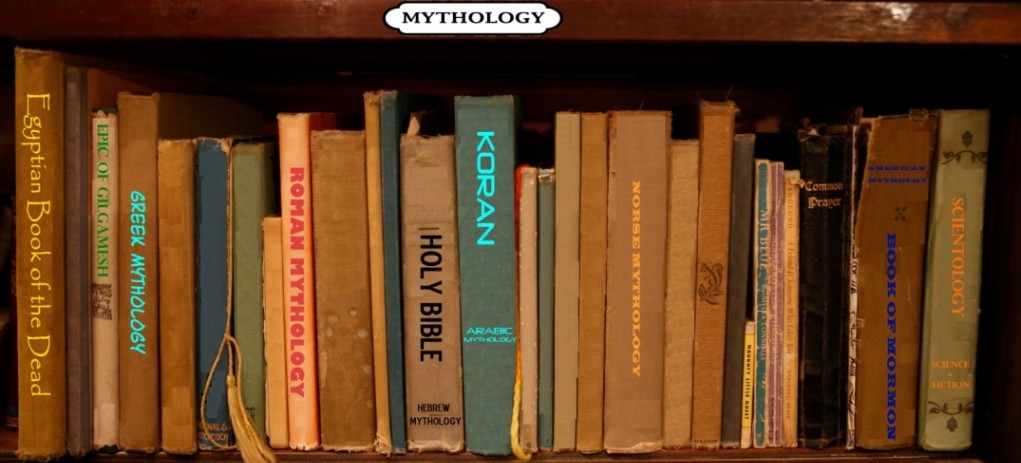
Pingback: Zombies, 747’s, and the Absurd. – Dispatches from the New Enlightenment